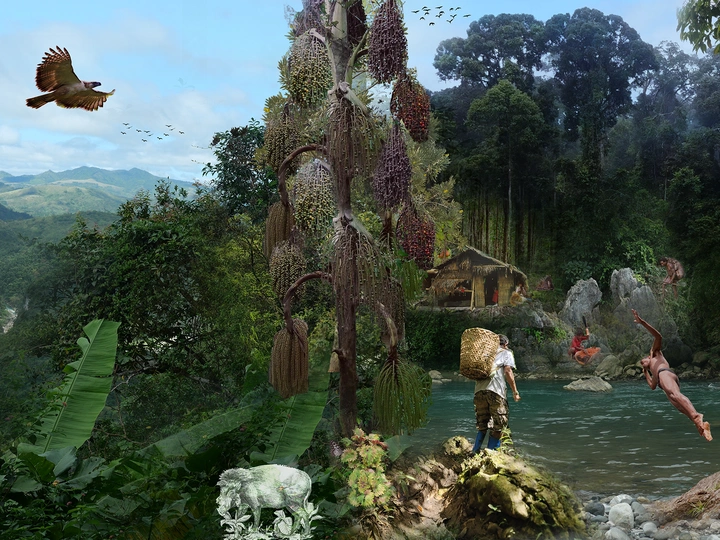The River as Endless Territory

I am Francisca Mejia, a Filipina architect and urbanist currently based in Paris, France. I completed my master in Urbanism at TU Delft in the Netherlands from which the project that bloomed for me therein was the complete refoundation of my own design thinking and process as a designer from the global south engaging with the global north. Being part of the Transitional Territories graduation studio enabled my deep dive into the recognition of the existence of pluriversality of world-making as most urgent today, requiring authentic exploration and representation as this drives our entire perception, reproduction, and care for space. As a professional architect, I have been continuing to develop my own architectural practice, Atelier FIJI, in where my 2 partners and I strive to bring forth a new wave of rooted architecture. Yet melding this with my role as an urbanist, what I discovered in my studies and work in Europe has been more about uncovering what has not be fully recognized nor explained to the eyes of the westerner and all those living in the world who are convinced that the current dominant system of life, which is a - to borrow the magical words of bell hooks - 'White-Supremacist Capitalist Patriarchy' is the only way.
There are pluriversal ways. As we recognize more and more the entanglement that we all exist in a continuum of struggles, from the climate crisis to the ongoing genocide happening as I write this, a collective liberation is demanded not only socio-politically but also in the practice of spatial design - a decolonization. In solidarity with the indigenous peoples in the Philippine archipelago, my work has been a poignant revelation as I grapple with my own identity as a Filipina designer with a tenderness for the country I call home, which is really just a place of land, language, and water.
I have presented my work in a few art and education spaces in the Netherlands and the Philippines, and would just love to share more.
From my master thesis and now ongoing personal design research as an architect-urbanist, I reveal a new critical unit of spatial study called the River Interface, from which we may more deeply and tenderly understand hyper-complex territories such as the Philippine Archipelago.
-
The Philippines is an archipelagic territory of 7,641 islands with a growing population of 110 million individuals. Multiplicities of multiplicities pervade in this tropical country, wherein its complex web of identities, resources, and risks is diminished and pressured by a neo-colonial paradigm of development. Accumulation within the archipelago reveals the worldviews of the urban and the indigenous, as well as their dynamics converging along the rivers as the main veins of a scattered nation. This is interrogated through their manifestations topographically and the displacements that occur in space with water along the riverscape as the omnipresent element that both sustains and threatens life in the Philippines. Through this project which proposes the River Interface as a framework for spatial inquiry, the careful deconstruction of the territory provides paths towards understanding more clearly the criticalities that define this dynamic, diverse, and delicate country, and the endless maintenance of give and take it encounters more poignantly as it faces the climate crisis.